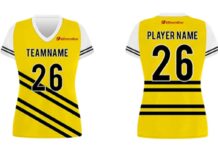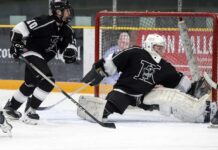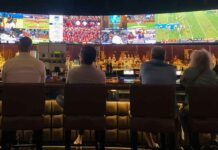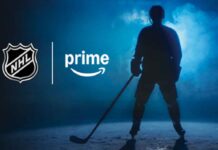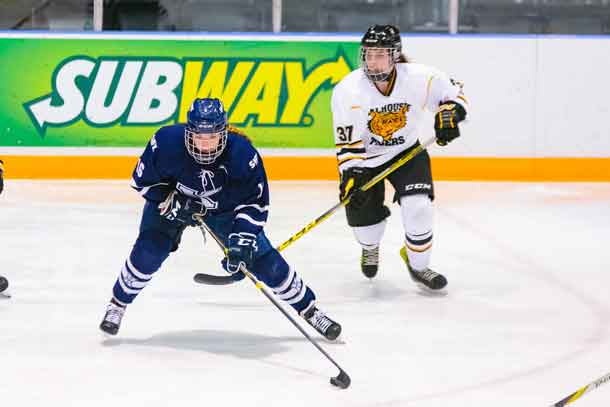
The relationship between the covered and those covering is morphing as teams expect different things from the people who inhabit the press box
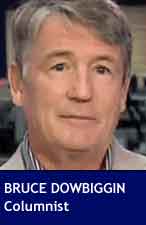 By Bruce Dowbiggin
By Bruce Dowbiggin
Many sports traditions are fading away. Fighting in hockey. The phantom tag at second base in baseball. The big slow centre in basketball.
Is media objectivity when covering sports about to become another vestige of the past?
Could be.
The death last week at the age of 91 of Red Fisher, the iconic Montreal sportswriter, was a reminder of another time, when independent journalists roamed the fruited plain of sports, dispensing stories that upset coaches, general managers and players alike.
In Fisher’s salad days, newspapers, and radio and TV stations were independently owned. And they jealously guarded their independence when it came to covering even the most popular teams. Such was Red’s influence and his prickly reputation that virtually no one walked into the Hockey Hall of Fame without his approval.
I owe a good deal of my professional success to that feisty independent spirit at CBC when I chose to take on controversial and powerful figures (although the public broadcaster seems to have become more partisan of late).
That spirit survived into the era of big-money payments from media organizations who paid billions to broadcast the sports they covered. While there were new goal posts, it didn’t prevent opinion and research from breaking stories. Rick Westhead’s work at TSN is a shining example of that resourcefulness.
But now that traditional media is under siege financially, the equation is changing. Newspapers have let go of most of their most valued reporters and editors in cost-cutting. TV networks being savaged by cord-cutting are likewise flooding the unemployed ranks with their former stars.
Many of them have headed to the employ of the teams and leagues they once covered, offering a pale imitation of their former feistiness on websites and broadcasts (hey, a person’s got to make a living). The relationship between the covered and those covering is morphing as teams expect different things from the people who inhabit the press box.
Example: Rick Carlisle, the head coach of the Dallas Mavericks is annoyed with ESPN’s alleged preference for celebrity over the coaches in the National Basketball Association. The head of the NBA Coaches Association made a comment that hinted at a lack of “loyalty” when Lakers coach Luke Walton was being ripped by the showboating father of L.A. rookie Lonzo Ball.
“ESPN is an NBA partner, and they’ve been a great one, but part of that partnership is that the coaches do a lot of things to help them with access – interviews and all those kinds of things. And in exchange for that, they should back up the coaches.”
In short, if you want to get the A-plus access, you’d better start kissing up a little. Now, Carlisle is no neophyte as a coach or a broadcaster. He joined the NBA as a player in 1984 and has played or coached most of the time since. He worked for ESPN as an analyst when he was between coaching gigs.
He gets it.
And his point about ESPN losing its way, indulging a media hog like LaVar Ball at the expense of the people who actually constitute the league is very well taken. ESPN – and other sports networks – have drifted into virtue signalling that has annoyed many traditional sports fans.
They seem to have forgotten who’s the bedrock of sports. Award shows honouring Caitlyn Jenner or promoting the diversity philosophy are a jarring contrast to the essential business of winning and losing in sports. Networks chasing sensation over substance have lost their way.
But are we also at a stage where the people who run the leagues are going to demand a higher loyalty for allowing reporters near the product? Is a quid pro quo going to be involved in getting tonight’s starting goalie or an injury update?
New independent outlets like The Athletic are an attempt to keep the spirit alive. But unless its business model works, it won’t last to keep up the good fight.
Without the experienced reporters who gave them institutional knowledge, most media outlets are now too weak to put up much of an argument when a coach disses them. The reporters and columnists left – often inexperienced and cheaper than their predecessors – are taxed to the hilt serving the many masters of deadlines, the web and hourly updates for all-news outlets.
There are columnists who toady to keep their connections tight with an organization or league. There are radio and TV outlets that cut their news cloth to suit their owner’s cloth.
But where will we be if the coaches, GMs and players demand that all the figures entering their dressing room adhere to that standard? Carlisle’s comments are a warning shot.
Columnist Bruce Dowbiggin career includes successful stints in television, radio and print. A two-time winner of the Gemini Award as Canada’s top television sports broadcaster, he is also the publisher of Not The Public Broadcaster.
© Troy Media
The views, opinions, and positions expressed by all columnists and contributors are the author’s alone. They do not inherently or expressly reflect the views, opinions and/or positions of NetNewsLedger.


